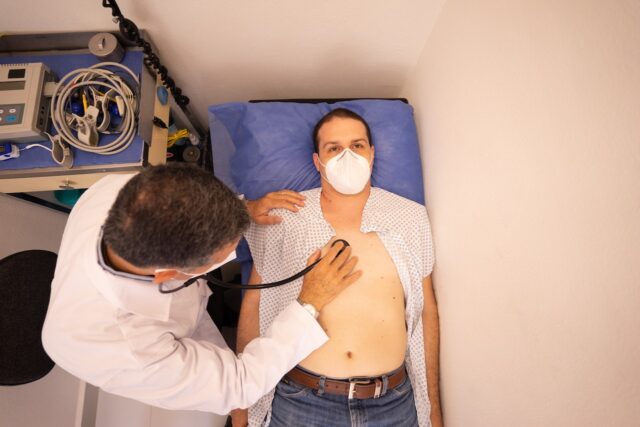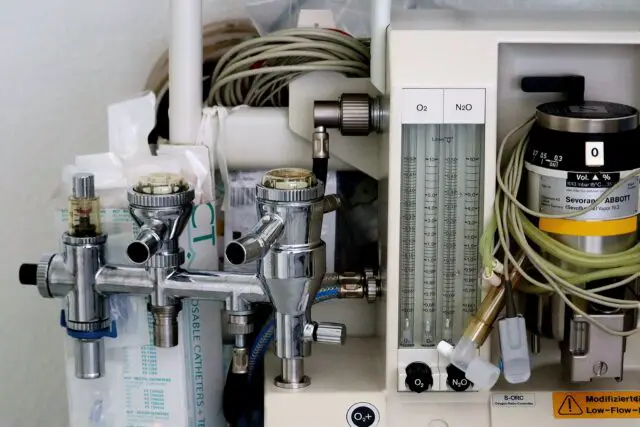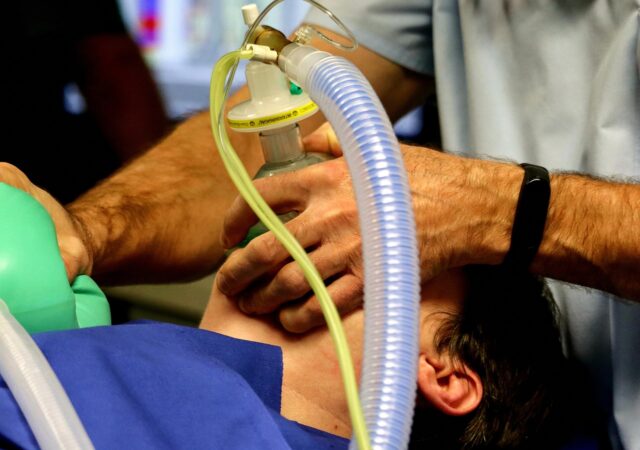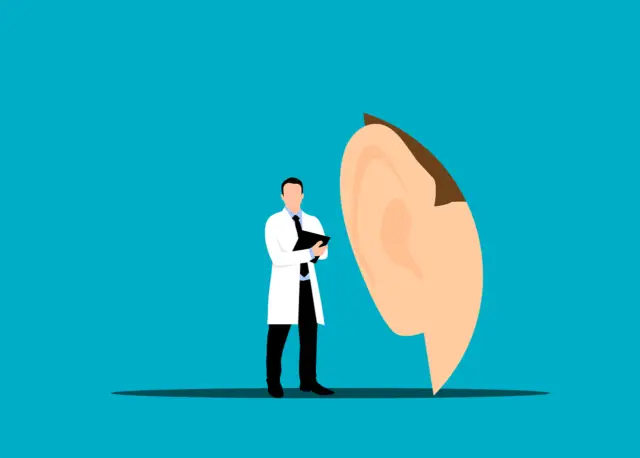In this guide, we’ll explore the cardiologist job description in detail, so you can gain a better understanding of what it takes to become a successful cardiologist and make a positive impact on the lives of your patients.
What is a Cardiologist?
Cardiologists are amazing medical professionals who have expertise in diagnosing and treating heat-related illnesses. They provide essential care to tons of people and help keep their hearts functioning at optimal health.
Becoming a cardiologist requires vast amounts of training and is quite a challenge. They must complete a four-year residency in internal medicine, followed by an additional three years focusing specifically on cardiology. It’s an impressive level of dedication and knowledge!
Establishing yourself in this career requires rigorous education and training, followed by successful completion of licensing exams and certification by the board of medical examiners. The standards are high and require dedication, but the rewards are impressive!
What are the Duties of a Cardiologist?
Cardiologists are incredibly vital in the healthcare industry, responsible for assessing, diagnosing, and treating heart and vascular-related conditions. Additionally, they can also be responsible for ensuring their patient’s cardiovascular health is well-maintained.
As a cardiologist, your primary job includes carrying out various diagnostic tests to assess the heart and vascular health of a patient. This includes activities like an electrocardiogram (ECG), echocardiogram, and stress tests – all of which are essential for patient care.
Cardiologists utilize these screenings to not only diagnose heart ailments such as arrhythmias, coronary artery disease, and congestive heart failure but also to take preventative measures.
These are highly trained professionals who can diagnose and treat heart conditions in an efficient manner. They can also prescribe medication, perform angioplasty, or implant pacemakers to help alleviate symptoms and improve quality of life. Simply put, they are key players in keeping our hearts functioning to their fullest potential.
Cardiologists not only diagnose and treat cardiovascular diseases but also offer lifestyle advice that can help patients reduce the risk of developing such diseases.
What Qualifications Are Required to Become a Cardiologist?
In order to become a cardiologist, individuals must complete a four-year residency program in internal medicine, followed by an additional three-year residency in cardiology. This profession requires you to be proficient in a variety of medical subjects, including anatomy, biochemistry, physiology, pathology, pharmacology, and radiology.
You must also possess strong problem-solving, analytical, and communication skills in order to accurately diagnose and treat patients.
Cardiologists must be licensed to practice medicine in their state and pass an exam administered by a board of medical examiners to become board-certified in cardiology.
Additionally, cardiologists must be up to date on the latest developments in cardiology and attend continuing education courses to maintain their certification.
What are the Benefits of Working as a Cardiologist?
Working as a cardiologist brings immense satisfaction and joy as you help to better people’s lives by improving their health. It also comes with many other exciting benefits!
These careers are in high demand and have the job security to match – this is due to the aging population and an increase in heart diseases. On top of that, they enjoy competitive salaries and often have flexible work schedules.
Not only do cardiologists have the benefit of a stable career and income, but they can also create a significant impact on the lives of their patients. It’s an endeavor that is both emotionally and professionally satisfying.
Medical professionals are utilizing their expertise and experience to treat diseases which can drastically improve the lives of their patients. It’s an awesome use of technology that is having a powerful effect on people’s well-being.
Cardiologists have a fantastic opportunity to develop strong relationships with their patients – an incredibly satisfying experience!
What is the Average Salary for a Cardiologist?
Cardiologists can expect to make an average of $266,000 annually. Factors such as location, experience, and kind of practice can lead to salary fluctuations.
What Types of Jobs Are Available?
Cardiologists have an abundance of job opportunities in different settings such as hospitals, private practices, universities, and research labs. It’s a great time to become a cardiologist and make use of the available positions!
Cardiologists have the exciting opportunity to specialize in a variety of fields, from electrophysiology and interventional cardiology to pediatric cardiology. They may even choose to focus on diseases and conditions like heart failure, arrhythmia, or coronary artery disease.
Cardiologists don’t just have to stick to their clinical roles – there is a range of other interesting opportunities available. Teaching, research, consulting, and managerial roles can also be explored. These avenues give cardiologists the chance to work as part of a team but with a different focus than typical clinical roles.
Cardiologists have the exciting opportunity to work in a variety of roles. From teaching in a classroom to treating patients, this gives them an amazing chance to both grow and share their knowledge. Working in multiple capacities allows cardiologists to maximize the impact they make within their field while having an enjoyable career.
Cardiologists are in for a wild ride – one of high pressure and uncertainty! Working in this line of the profession means constant alertness to face an unanticipated crisis. It’s definitely not for those afraid of challenges.
As a Cardiologist, you are required to have excellent problem-solving and communication skills along with strong interpersonal and analytical abilities. This is an extremely rewarding and fulfilling career if you have the right qualifications and experience.
What is the Demand for This Profession?
The need for the services of cardiologists is on a steady rise due to the aging population and rising cases of heart diseases across the country. This shortage of cardiologists has created an increased demand for qualified professionals in many areas.
What is the Job Outlook for Cardiologists?
The job market for cardiac experts is incredibly positive and the outlook looks great. The predicted growth rate from 2019-2029 is a whopping 17%, which is way higher than the average for all occupations. This means that the demand for cardiologists in the near future will be strong!
The demand for cardiologists is at an all-time high due to the rising elderly population and the occurrence of heart diseases. This has led to tremendous growth in this field and created opportunities for those looking to pursue it.
In addition, advances in technology and treatments have revolutionized cardiology. This is giving cardiologists the power to make more accurate diagnoses and provide top-notch care for their patients.
Working as a cardiologist promises both financial stability and job security. The demand for such professionals is expected to remain steady in the future.
Cardiology is one of those very rewarding and attractive jobs that offer flexible timings. In addition to this, cardiologists have prospects for career growth and job satisfaction. All these things make it a perfect choice for many medical professionals.
What Skills Are Needed to Become a Successful Cardiologist?
Cardiologists need to possess not only great problem-solving and analytical abilities but also be highly detail-oriented with fabulous interpersonal skills. Good communication skills are a must for them to work with patients and other healthcare professionals effectively for the best outcomes.
Overall, if you want to be successful in this field, you have to have all these traits!
What Types of Education and Training Do Cardiologists Need?
Cardiologists have to go through an intensive training period consisting of four years of residency in internal medicine and three more years specializing in cardiology. The ability to obtain this level of knowledge is truly remarkable!
Becoming a certified cardiologist requires specialized knowledge and skill. They must not only be licensed to practice medicine in their respective states but also must pass an exam administered by a board of medical examiners to gain official recognition as cardiologists.
What is the Best Way to Find Cardiologist Jobs?
An effective way to hunt for cardiologist jobs is to check out online job boards like Indeed or Monster. Additionally, you could also network with fellow professionals and go attend conferences – this could be a great way to grow your job prospects.
Cardiologists should take advantage of the incredible resources offered by organizations such as the American College of Cardiology. Joining them is an excellent way to take your career to the next level and find great job opportunities.






